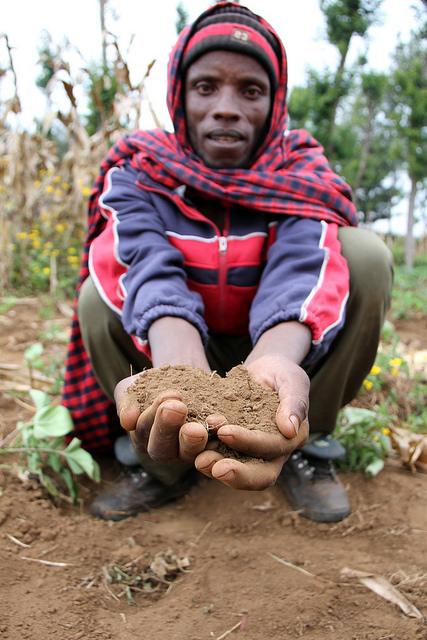Methods for equitable local adaptation planning and governance
 Significant investment in climate-smart agriculture (CSA) is in the pipeline. Donors, multi-lateral agencies and government agencies are asking what the best-bet CSA options are for a given context.
Significant investment in climate-smart agriculture (CSA) is in the pipeline. Donors, multi-lateral agencies and government agencies are asking what the best-bet CSA options are for a given context.
There is, however, limited knowledge on what CSA practices and technologies are the most appropriate at local scales. In addition, wide-scale adoption of CSA practices, technologies and portfolios will require an enabling environment, which includes local and regional level plans and policies. A better understanding is needed of how sub-national policies and programs can incentivize farmers to adopt best-bet CSA.
In short, decision support tools are needed to evaluate the cost effectiveness of different climate-smart agriculture (CSA) options. These tools will support decision makers as they identify CSA priorities at a range of scales, from local to national levels.
Elements of this research include work on local adaptation planning. This work will interface with public and private initiatives in Climate-Smart Villages, but also at higher levels, including the evaluation of national level enablers. A suite of tools for different purposes and contexts will be developed and applied to support donors, governments and investors make better choices for CSA-related programming. This will increase the relevance and likely impact towards the achievement of CSA-related outcomes at scale.
Through the development of prioritization and decision support tools, this research will aid climate-smart decision-making and action planning. It will also enhance the adaptive capacity of communities and institutions. The primary outcome of this research will be more effective CSA programming, which will ultimately increase CSA adoption by farmers and return on CSA investments by donors.
This research will also promote a greater inclusion of climate variables in the definition of breeding strategies to ensure that the pipeline of emerging technologies from agricultural research are progressively more and more adapted to climate constraints, providing farmers with new options to confront climate challenges.
Research activities include:
- Further development of a compendium of CSA practices and technologies, with information on the associated costs, benefits and adoption constraints.
- Development of prioritization and decision support tools for guiding CSA investments.
- Spatial modelling to understand application domains of promising CSA options.
- Improved modelling of climate impacts on specific CGIAR mandate crops, and quantification of uncertainty.
- GxE analyses and big data approaches to understand abiotic constraints affecting different crops across climate gradients.
Projects include:
Region | Project Name |
| Global | |
Latin America | |
| West Africa | |
| South Asia | |
| Southeast Asia |